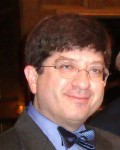President’s Message
 By Ben S. Pollock
By Ben S. Pollock
NSNC President
One morning I woke up presuming I could start this month’s column with, “Hello, I have a story to tell,” and wing it.
I didn’t have a clue where to go from there, though.
It’s OK not to have a story. I figured out a principle some time back, a blog that turns out to have been posted exactly five years ago, Thanksgiving 2005, http://tinyurl.com/brickstory. As usual with what’s already run, it seems lacking so here’s what I should have written:
A character in the 2003 novel “Old School” by Tobias Wolff argued for the human necessity of stories. If you have much truck with college creative-writing programs or weekend workshops (which I have and found value in them), then this is a point you’ve heard, that stories and storytelling are a near-biological necessity.
In the book, an English teacher, Mr. Ramsey, says something to the effect of: Essays are wonderful but they’re not necessary. They’re like chess. If the world didn’t have them it’d be a sadder place but we’d get along. Storytelling is different; the world needs stories and storytellers.
“Old School” is so thoroughly contemporary American fiction that a paragraph like that stood out: Was Wolff speaking through a character? Other novelists do that all the time these days, tease the reader into wondering what scenes or characters are autobiographical. Wolff is known as a memoirist, after all. On the other hand, he is here a storyteller so he might imagine that this pronouncement is just the sort of thing a pretentious but well-meaning instructor like Mr. Ramsey would say.
But the statement that essays are not essential bothered me in 2005, and still does. Teacher Ramsey was telling this to the novel’s narrator when he was Ramsey’s teen-age student and had shown aptitude toward both forms. (I like the novel, by the way — the fun of having Robert Frost, Ayn Rand and Ernest Hemingway drop by.)
While scholars consider the essay a rather new genre, starting with Montaigne in the 16th century, in other ways the essay must be as old as story or myth or history. Essays must have started as an oral tradition.
Columns as we read and write them, even when they’re stories or anecdotes, come from the format of the personal or persuasive essay. I’ve often wondered if we’re drawn to them because the essay is the main kind of writing we’re taught year after year in school.
But I also claim that columns are prehistoric: You know the sermon: Give someone a fish, he’ll eat today. Teach him to fish, he’ll be able to eat the rest of his life. If Aesop or Confucius wanted to say that, we’d hear talking animals. But we don’t; we’re told the aphorism.
The fish lesson is a short column or essay. The village elder or clan leader would stand the children on the river bank, give them each a pole, fiber for a line and a thorn for a hook, and show and speak how to fashion bait and to cast. To cement the importance of the lesson, he’d give the maxim, eat for a day or forever, because the concentrated phrasing cements the teaching.
Hence, the basic essay: exposition to persuade. We could not have survived to the present day without instructions.
Storytelling is suited best for nighttime, essays in the daylight. The village elder at the campfire likely told a few fish tales, for entertainment and also for emphasis, as a lively bit of story helps the memory.
The day has hunting and gathering, tending the children, maintaining the village or camp, and warring. Essays are mainly “here’s how” with some “here’s why” to justify actions.
Storytelling has the night to itself: It’s when questions come up and there’s time to answer them or speculate. Stories are mostly “here’s why” with bits of “here’s how” to ground them.
If America is a literary nation, then Mark Twain would be its primal storyteller. Then Thomas Paine would be its defining essayist. Night and day, in many ways.
Essays help the individual and group survive. Stories strengthen minds and hearts. A columnist may be better at one or the other, may prefer one over the other, but must be familiar in using both. They need to be in the toolbox.
Chess, it’s still a game. I’d hate to see it go, but as long as we have cribbage we don’t need chess.

